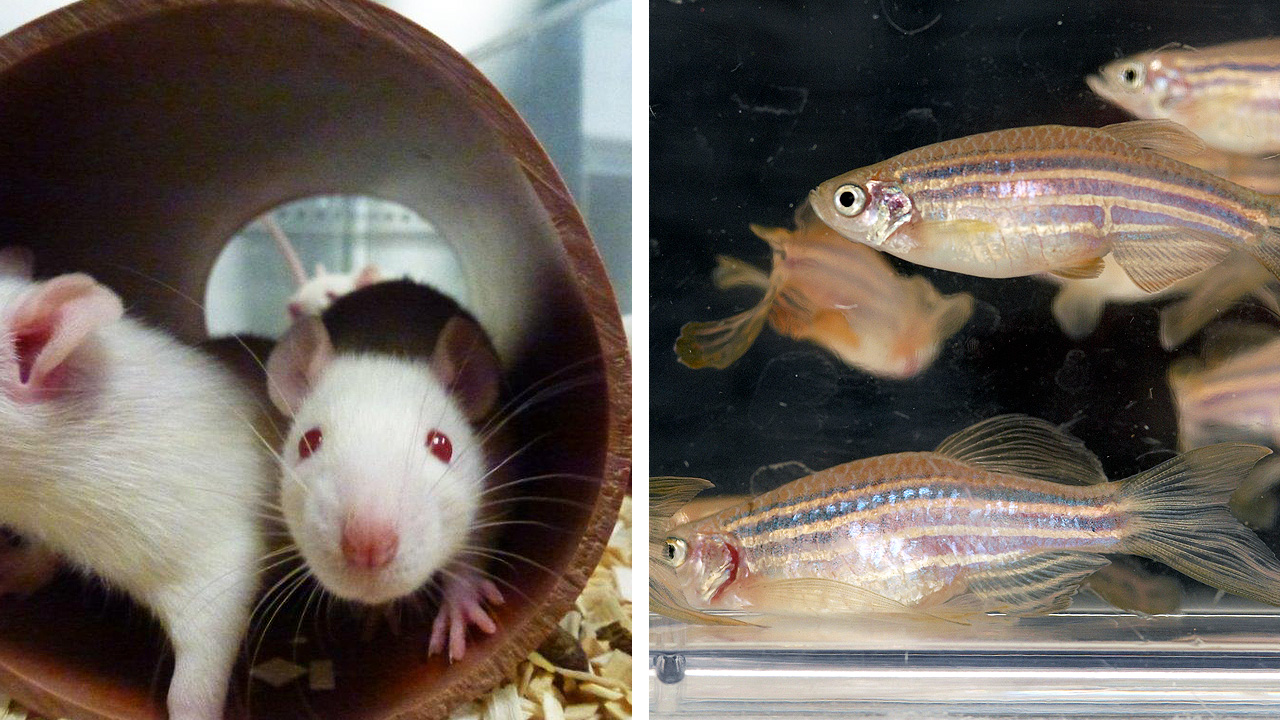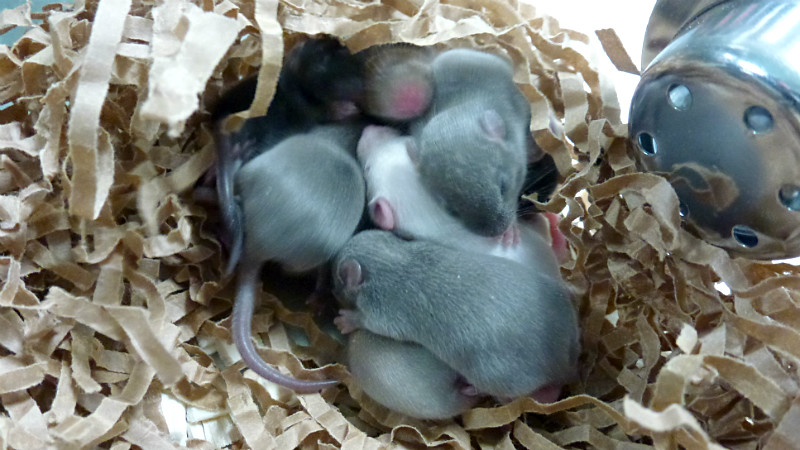�������Թϱ��� highlighted again as leader in openness in animal research

For the third time, the �������Թϱ��� is among 10 institutions out of 130 selected as a leader in openness in communicating about its animal research.
Animal research news and press releases from �������Թϱ���.

For the third time, the �������Թϱ��� is among 10 institutions out of 130 selected as a leader in openness in communicating about its animal research.
Research increasingly shows sex differences in human medical issues, so excluding females from research has worrying consequences for women’s health.

An important link has been found between the intellectual disability seen in children with Joubert Syndrome and defects in a specific part of the brain.

Dr Vasanta Subramanian has been awarded nearly £50,000 to study how a species of African fish can help scientists develop treatments for Alzheimer’s disease.

Researchers from CAMERA have developed motion capture technology that enables you to digitise your dog without a motion capture suit and using only one camera.

Animal patterns are a source of endless fascination, and now researchers at the �������Թϱ��� have worked out how zebrafish develop their stripes.
Our policy statement on animal research, the procedure for ethical review and the code of ethical practice we follow.

How we approach research involving animals, including regulations we follow, our ethical review process and the animal species we use in our research.
Our code for research and experimentation involving the use of animals.
How we conduct the ethical review of the use of animals, their tissue or blood in research and teaching.
Read about the type and scale of our animal research activities and their impact on animals.

Frequently asked questions about our animal research activities and the impact on animals.
See more details of the type and scale of our animal research.
What you need to do to make sure your research involving animals is ethically responsible.
What you need to do if you are planning to carry out research involving animals.
Read about our animal research in action.

�������Թϱ��� researchers are building model tumours to learn how pancreatic cancer affects nerve cells and find new therapies to target tumour growth and patient pain.

Scientists need to better understand what goes wrong in the developing brain to find new treatments for epilepsy – freshwater minnows are vital to their work.

Developmental geneticist, Dr Kim Moorwood, explores how the genes behind fetal growth could impact our chances of serious health conditions in later life.

We are using computer-simulated methods (in-silico) to model organisms and better understand neural networks.

Researchers in the Department of Life Sciences are exploring oral medicines to replace injections, helping improve treatment effectiveness and patient outcomes.